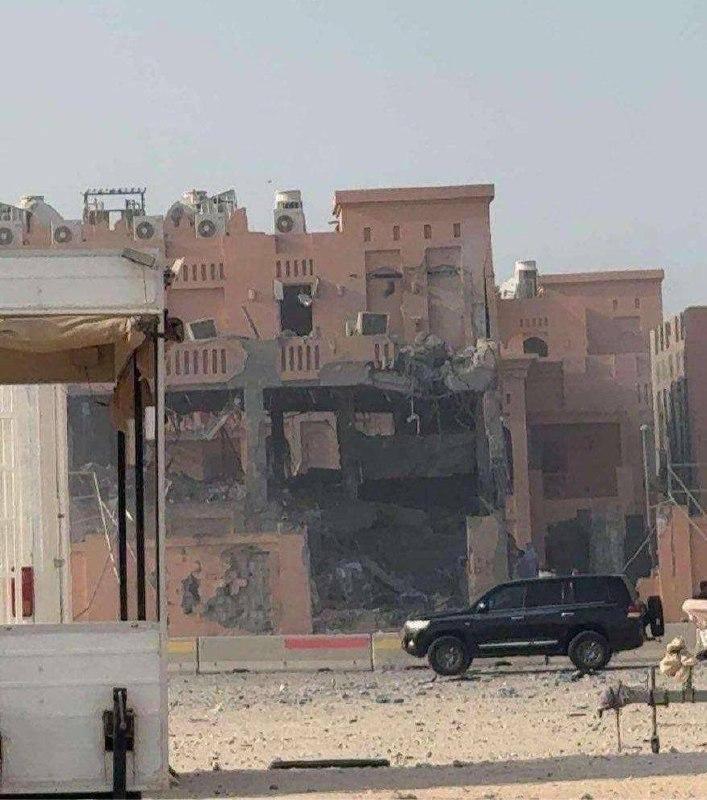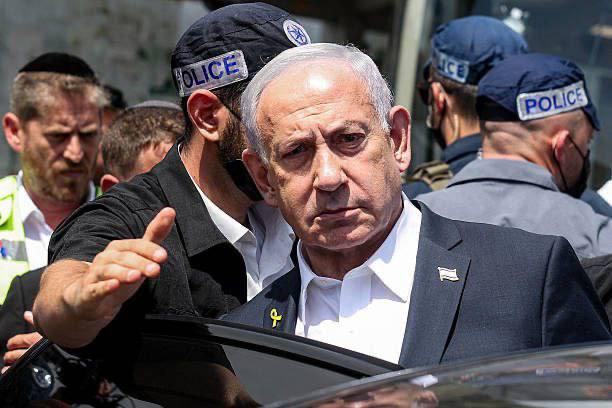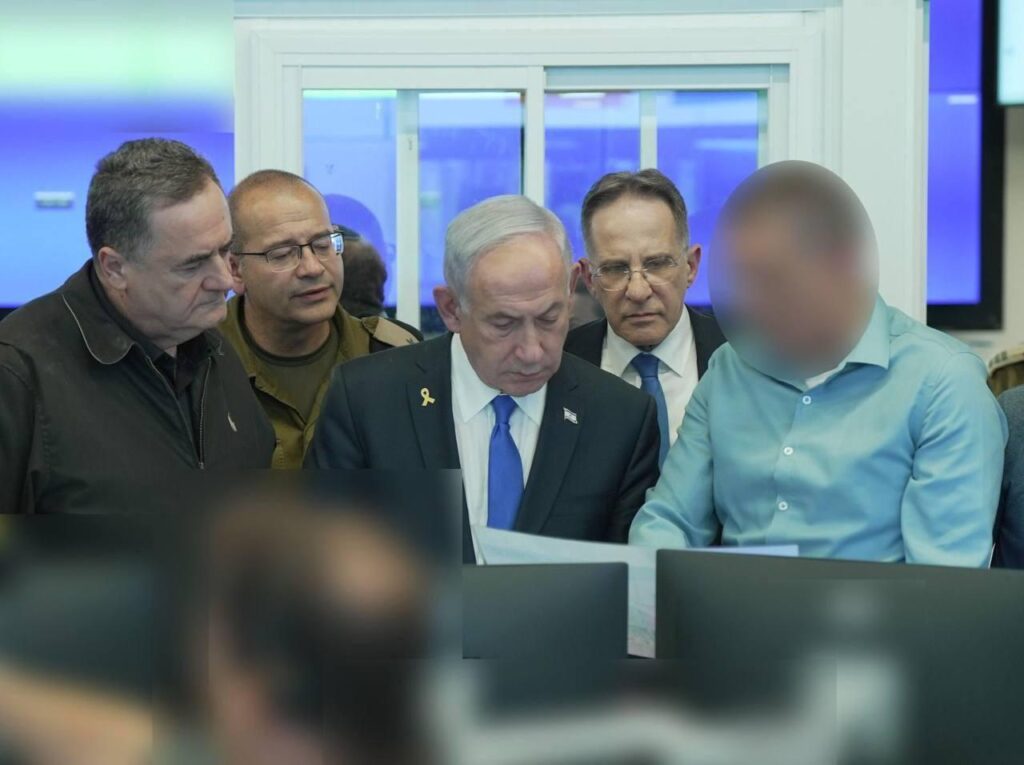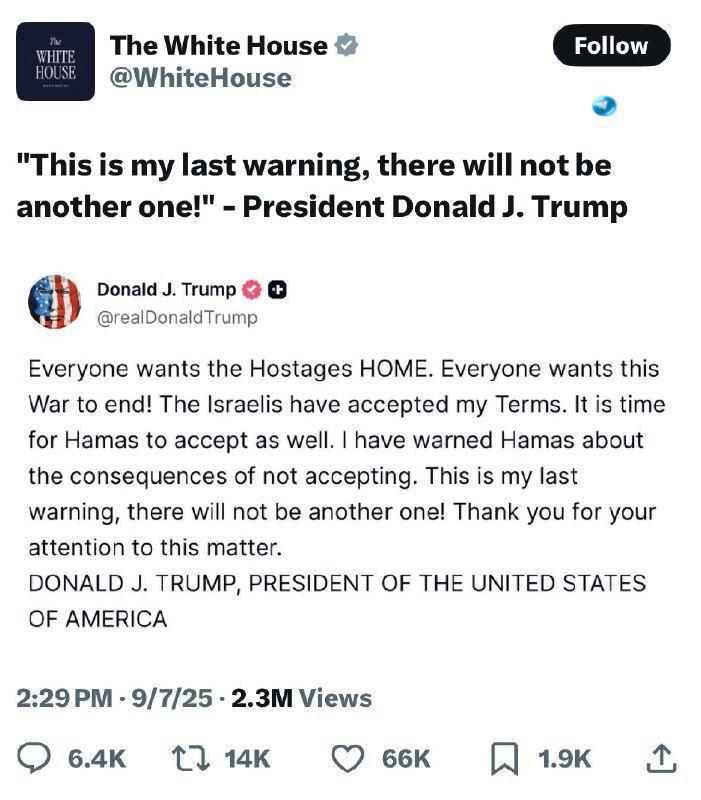
By Rohan Gunaratna
The Operation “Summit Of Fire”
Israel mounted an off-shore operation to decapitate the Hamas leadership in Doha, Qatar on September 9, 2025. Although Mossad has the principal responsibility for overseas operations, the operation was mounted by Shin Bet in Tel Aviv and was executed by the Israeli Air Force (IAF). Supported by the Intelligence Department of the Israeli Defence Forces (IDF), 15 IAF fighter jets flew 1800 kilometers to drop 12 precision guided bombs. The air-to-ground missiles hit a single target within seconds of each other. Aerial refueling was carried out and all the pilots returned safely.

In a statement released immediately after the attack on September 9, 2025, Israel stated that the IDF conducted a “precise strike targeting the senior leadership of the Hamas terrorist organization” who are “directly responsible for the brutal October 7 massacre”.
Israeli Prime Minister’s Office on September 9, 2025 said,
“Today’s operation against Hamas terror leaders was a completely independent Israeli operation. Israel initiated it, Israel executed it, and Israel takes full responsibility.” In the past three years, Israel has steadily normalized extraterritorial operations against its enemies. Israel since the Hamas led massacre of October 7, 2023 attacked its enemies in:
- 🇵🇸 Gaza, West Bank
- 🇱🇧 Lebanon
- 🇸🇾 Syria
- 🇮🇶 Iraq
- 🇮🇷 Iran
- 🇾🇪 Yemen
- 🇶🇦 Qatar


The Context
Hamas leaders targeted represented nearly all of the remaining Hamas leaders. The Hamas leadership targeted in Qatar were:
- Khalil al-Hayya – Head of Hamas in Gaza
- Zaher Jabarin – Head of Hamas in the West Bank
- Khaled Meshaal – Head of Hamas abroad
- Nizar Awda – Member of the Political Bureau
- Tahar Nunu – Member of the Political Bureau and responsible for public relations
- Hossam Badran – Member of the Political Bureau
- Mohammed Darwish – Chairman of Hamas’ Shura Council
- Mousa Abu Marzouk – Deputy Chairman of the Political Bureau.
If any of these leaders survived, they too will be eliminated by Israeli in response to their role in the October 7 massacre. Israeli thinking is that punishment should follow crime.
By launching an attack on the leadership of Hamas in Qatar, Israel expanded its military actions that have ranged across the Middle East to include the Gulf Arab state where Hamas has long had its base.
During the strike on Hamas in Qatar. Prime Minister Benjamin Netanyahu, Defense Minister Israel Katz, acting Shin Bet chief “Mem,” IDF Intelligence Directorate chief Maj. Gen. Shlomi Binder, Military Secretary to the Prime Minister Maj. Gen. Roman Gofman, Netanyahu’s chief of staff Tzachi Braverman, were at the Shin Bet’s command center.
A joint statement from Prime Minister Netanyahu and Defense Minister Katz immediately after the attack in Qatar:
“Yesterday, following the deadly attacks in Jerusalem and Gaza, Prime Minister Netanyahu instructed all security agencies to prepare for the possibility of eliminating Hamas leaders. The Defense Minister fully supported this proposal.
This afternoon, in light of an operational opportunity, and after consultation with all heads of the security system and with full backing, the Prime Minister and Defense Minister decided to carry out the directive given last night to the IDF and Shin Bet, and they did so precisely and optimally.
The Prime Minister and Defense Minister believed the action was completely justified given that this Hamas leadership initiated and organized the October 7 massacre, and has not ceased to launch murderous actions against the State of Israel and its citizens since, including taking responsibility for the murder of our citizens in yesterday’s attack in Jerusalem.”

Netanyahu also instructed the ministers not to give interviews to the media, including refraining from activity on social networks—until further notice. Qatar stated it is suspending its mediation efforts for a deal until further notice.
Two days before the Israeli strike, President Donald J. Trump gave a telling message to the world. Titled, “This is my last warning, there will not be another one”. On Twitter, Trump said,
“Everyone wants the Hostages HOME. Everyone wants this War to end!” Trump wrote on his Truth Social platform. The Israelis have accepted my Terms. It is time for Hamas to accept as well. I have warned Hamas about the consequences of not accepting. This is my last warning, there will not be another one!”
The speaker of the US House of Representatives Mike Johnson: “Hamas must be destroyed”.
This is the first time since the Entebbe raid that Israel has openly attacked a country which was not a formally declared enemy. Nevertheless, there have been attempts by Israeli lawmakers to declare Qatar a formal enemy country in recent weeks.

The Future
The Israeli elimination of Hamas leadership in Qatar is a turning point in Israel’s fight against Hamas. The attack closes the door of negotiations. It is very likely that the hostages will not be released alive.
Hamas was informed several times by Israel, Western and Arab governments to release the hostages. However, the ideology of Hamas was to exploit the hostages for its survival. The elimination of the Hamas leadership will be followed by IDF’s destruction of Gaza. The probability the hostages will be released and Hamas disarms is unlikely. If the Israeli and foreign hostages are killed by Hamas, Israel will annex both Gaza and West Bank.
Conclusion
To fight terrorism, a cardinal principal is to hunt the terrorists and protect the civilians. In the case of Israel, it has focused on countering the threat and not winning over the public. As such, the threat to Israel is likely to persist.
Israel has demonstrated mastery in decapitation operations. Israeli model of fighting terrorism is now under study by many governments. Israel has been successful in its counter terrorism campaign of eliminating terrorists. However, on the humanitarian campaign, Israel comes under criticism both at home and overseas. Although its approach is controversial, it is likely that the Israeli method of counter terrorism will be embraced by many governments in the years to come.
Rohan Gunaratna is editor of the Handbook of Terrorism in the Middle East.